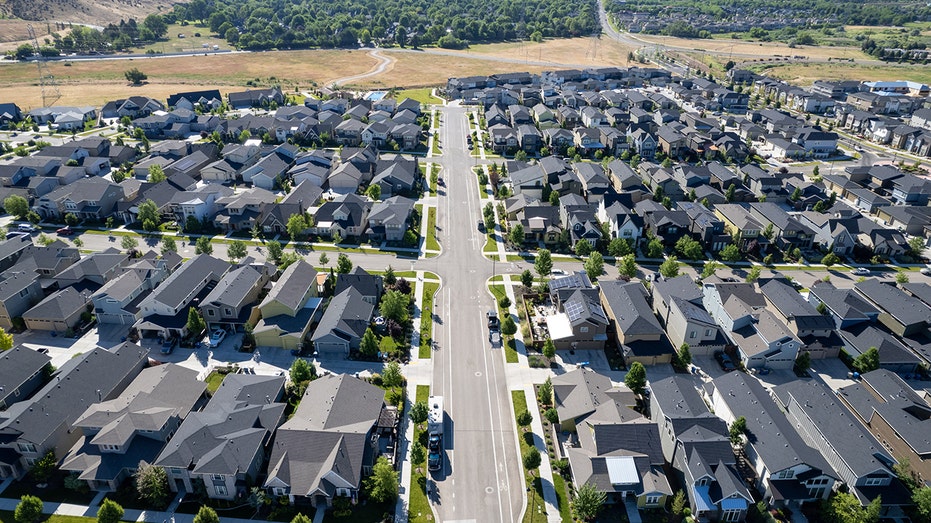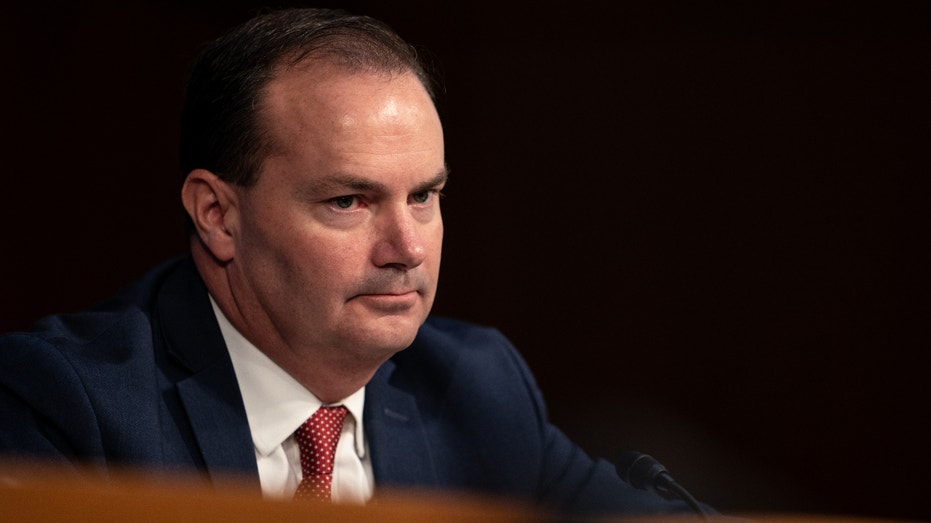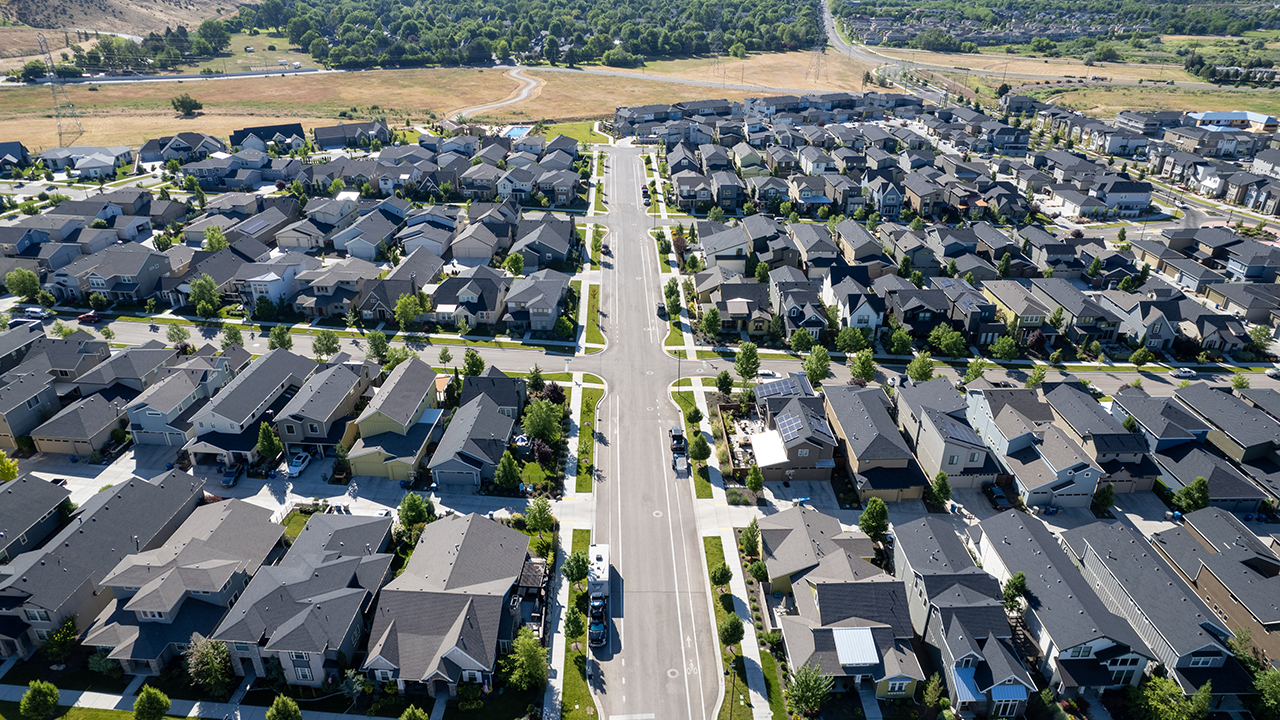Republican bill could help relieve US housing shortage, JEC analysis shows
Buying federal land for affordable housing could help alleviate home shortage, analysis shows
What's causing the housing affordability 'crisis'?
National Association of Home Builders CEO Jerry Howard weighs in on 'Varney & Co.'
EXCLUSIVE: A proposal from Republican Sen. Mike Lee that aims to alleviate the nation's worsening housing crisis by putting untapped federal land into local hands could make major inroads in constructing more affordable homes, according to a new analysis published Thursday by the Joint Economic Committee Republicans.
The findings, shared first with FOX Business, show the Utah Republican's proposal would lead to the construction of 2.7 million new homes in the U.S., reducing about 14% of the nation's housing shortage.
Lee's proposal would be particularly effective in the West, where the federal government owns about half of the land: It would fill all – or nearly all – of the housing shortage in Arizona (100%), Nevada (100%), Wyoming (100%), Idaho (95%), Alaska (85%) and New Mexico (85%) and would make a substantial dent in places like Montana (73%), Oregon (69%), Utah (35%) and California (27%).
"The key issue here is that there is a major housing affordability problem in the U.S. today, and it’s only gotten worse since the COVID-19 pandemic began," Kevin Corinth, a staff director at the Joint Economic Committee, told FOX Business. "Home prices are up 30% year-over-year. As a result, housing is more out of reach for Americans than ever before, and we need solutions to deal with it."
HOW HOUSING IS FUELING SEARING-HOT INFLATION

Houses in the Harris Ranch community of Boise, Idaho, US, on Friday, July 1, 2022. (Jeremy Erickson/Bloomberg via Getty Images / Getty Images)
The Helping Open Underutilized Space to Ensure Shelter – or HOUSES – Act allows state or local governments to buy parcels of federal land at a reduced price in order to increase housing supply in their areas. The measure would require any jurisdiction that bought land to use it for housing, subject to a density requirement, and would protect against the development of expensive second homes on the purchased parcels, according to a news release from Lee's office.
In order to build 2.7 million new homes, the federal government would have to transfer an estimated 0.1% of land, or about 681,000 acres, to local governments. Revenue generated from the sales would be funneled back into various types of land management projects, including forest fire prevention activities, habitat conservation activities and water infrastructure, in the state where it was sold.
HOUSING STARTS IN JUNE PLUNGE TO LOWEST LEVEL IN 9 MONTHS
"This policy could allow substantial progress in increasing housing supply and thus making housing more affordable in Western states—without any federal spending, without any interference with local decision-making, and with very little loss in federal land holdings," the analysis said.

Sen. Mike Lee, R-Utah, listens during Supreme Court Justice nominee Judge Amy Coney Barrett's Senate Judiciary Committee confirmation hearing for Supreme Court Justice in the Hart Senate Office Building on October 12, 2020 in Washington, D.C. (Erin Schaff-Pool/Getty Images / Getty Images)
Mortgage giant Freddie Mac estimated that the nation is short about 3.8 million housing units, while the Joint Economic Committee has projected it is actually as high as 20 million homes.
The housing market exploded during the early days of the COVID-19 pandemic, buoyed by record-low interest rates at the same time that American homebuyers – flush with cash and eager for more space – started flocking to the suburbs. Home prices were up 19.7% in May from one year ago, according to the most recent data from the S&P CoreLogic Case-Shiller National Home Price Index. By comparison, pre-pandemic levels hovered around 4%.
High housing prices are primarily driven by "restrictive land-use regulations that keep workers from moving to more productive labor markets, restrict economic growth, slow family formation, and worsen housing insecurity," the JEC said.
GET FOX BUSINESS ON THE GO BY CLICKING HERE
However, Lee's bill could help make housing more affordable by expanding the supply: The report estimated that an additional 4.7 million Americans could afford to buy the average home in their state if the HOUSES Act became law.
"Restrictions on housing supply have a negative impact on the economy and the wellbeing of American families by driving up the cost of homes in the United States," the report said. "Rising home prices impose obstacles on family formation, price workers out of labor markets, dampen economic growth, and worsen the problems associated with housing insecurity."





















